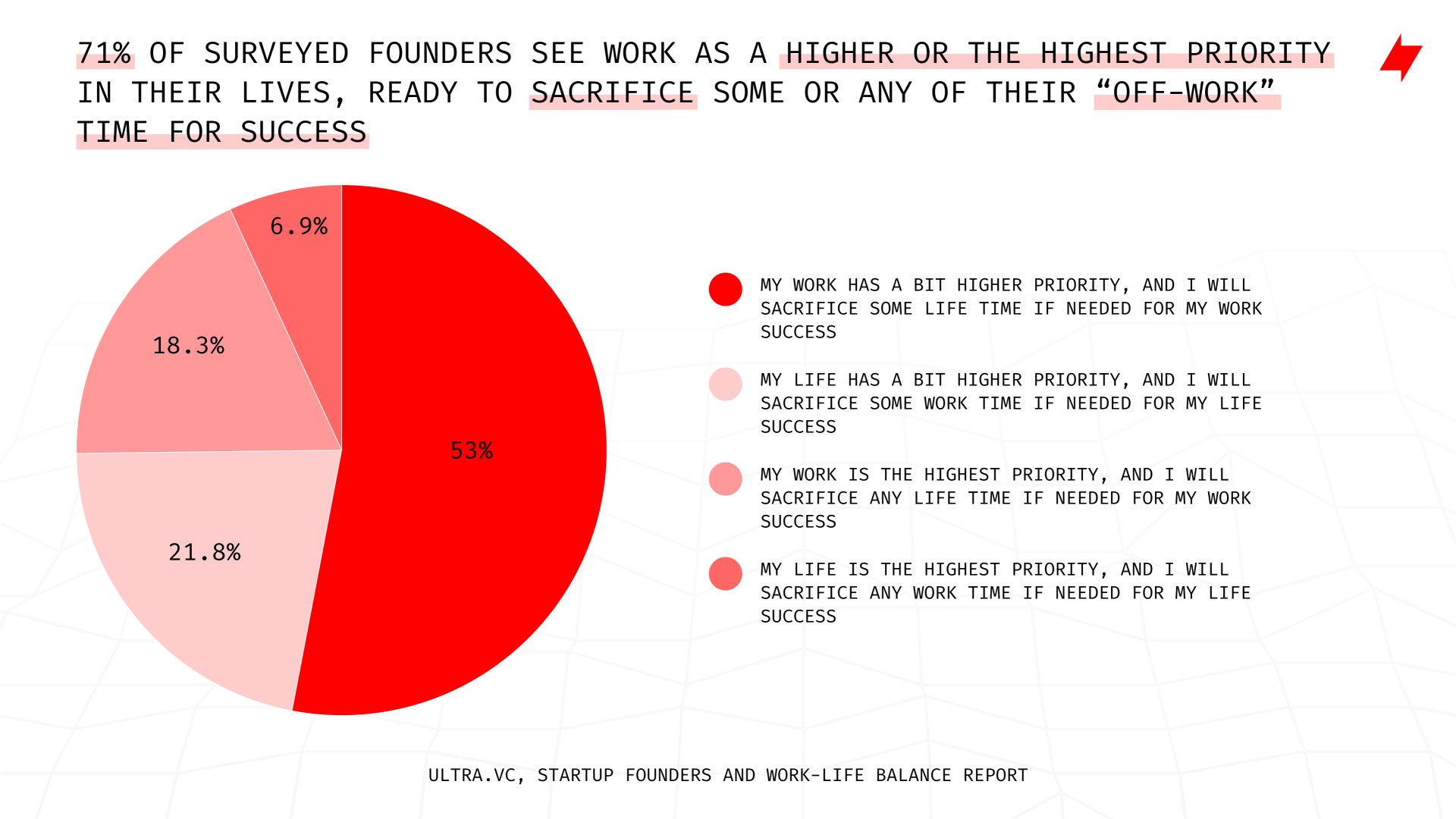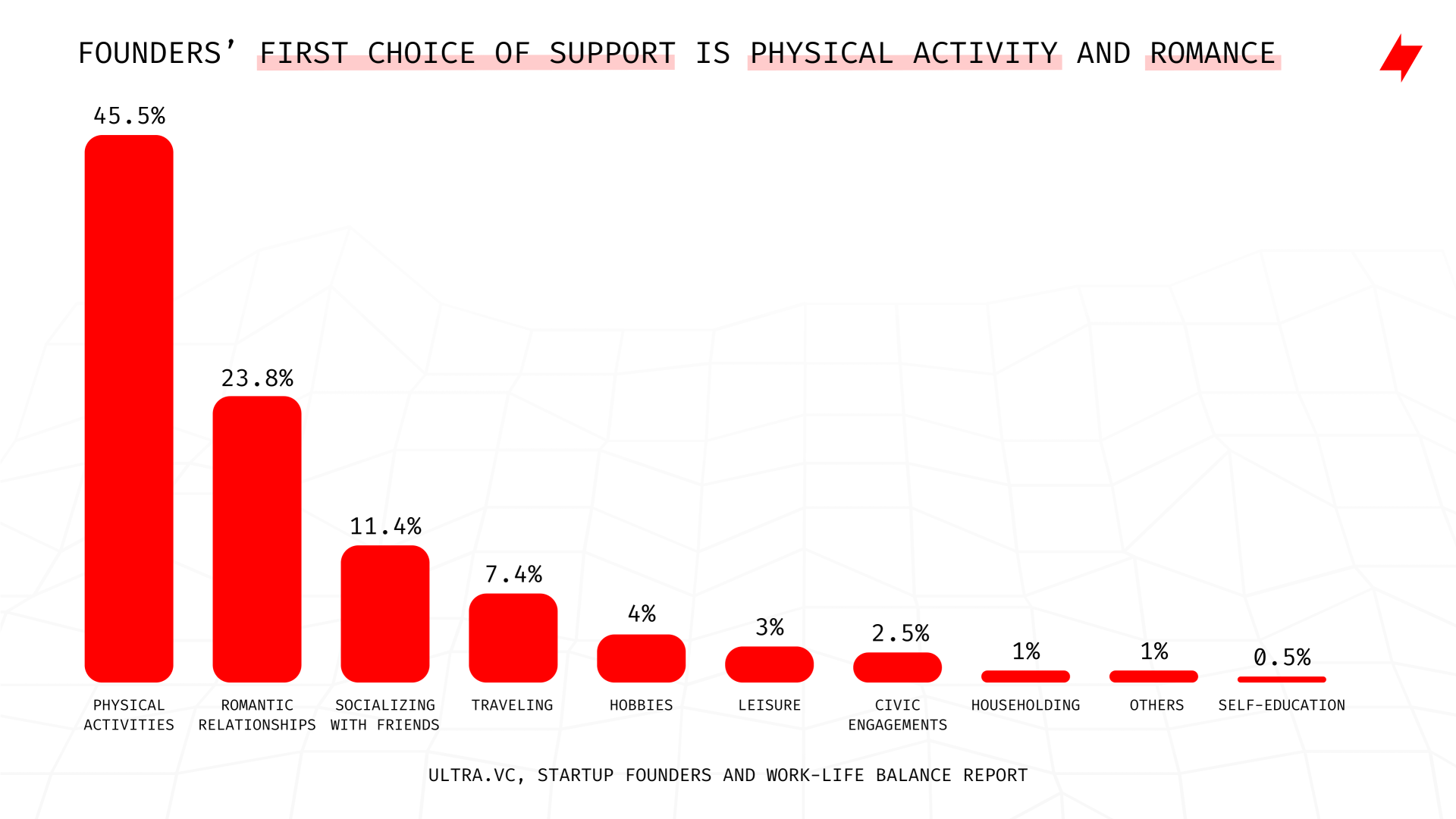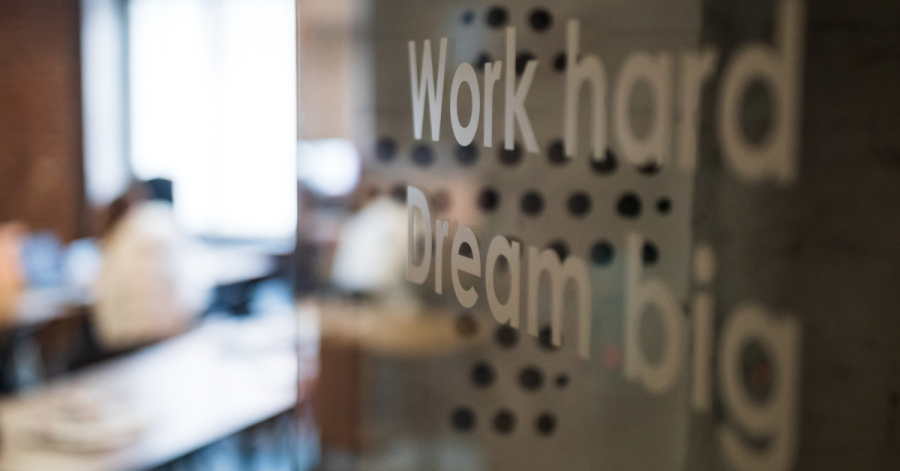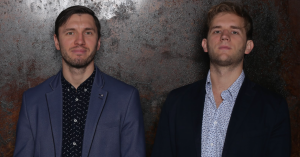71% of founders surveyed by ULTRA.VC, an early stage investor/accelerator, see work as a higher or the highest priority in their lives, sacrificing some or any of their “off-work” time for success. This dedication is seen as essential for making a startup thrive.
Gen Z founders are more inclined to extremes, with 31.8% ready to sacrifice their personal lives for work, compared to 14.9% of Millennials and 12.5% of Gen X respondents.
The study analyzed the answers of 202 startup founders from 47 countries, mainly in the EU.

More time for work, less time for sport
The top three activities founders sacrifice for work are hobbies (18.8%), leisure time (15.5%), and physical activity (14.7%). Additionally, 45% admit they no longer have time to meet with friends.
Interestingly, despite sacrificing physical activity for work, 45.5% of respondents turn to sports for a dopamine boost.
For example, Sebastian Gabor from Digitail told us in The Recursive Podcast that he trained 14 hours a week for the Ironman competition. “During the week, I did mostly 1-hour runs, swims, or biking. I listened to podcasts or audiobooks during this time. For me, swimming is the most meditative exercise I could do.”
Moreover, for 23.8% spending time with their romantic partner is a source of joy, while 11.4% find socializing with friends good for their mental health.

60 hours work week
When it comes to the number of working hours, things are uncertain. While 80% of the respondents claim that they work up to 60 per week, running a business often means work takes various forms, making it hard to track hours precisely.
“Working 60 hours or more a week without risking burnouts means that it is important to listen to its own body and disconnect when we feel too tired, or unproductive. Hobbies can also be a great place to find resourceful information that can help at work. For example, I sometimes chat about SEO or commercial strategies while playing basketball with some friends,” Luka Zivkovic, co-founder of the Romanian FoodTech Bonapp said.
“I usually work from 9 AM to 9 PM and 4 hours on Sundays. I will probably do this for 2-3 more years until I exit from the operational,” another growth stage startup founder told us.
CEE vs the US
As seen in many cases, founders have some specific traits that make them persevere and deliver on their promises. However, when looking at CEE versus America, the picture is different there.
“Founders in the US are hustling much more than on that side of the world. When they start, they go all in. That’s why they are more successful,” a Romanian VC representative said.
To make it work, founders even move overseas for a good period. Radu Negulescu from Sessions, Liviu Dragan from DruidAI, Marek Nebesar from Behavio are only a few examples.








